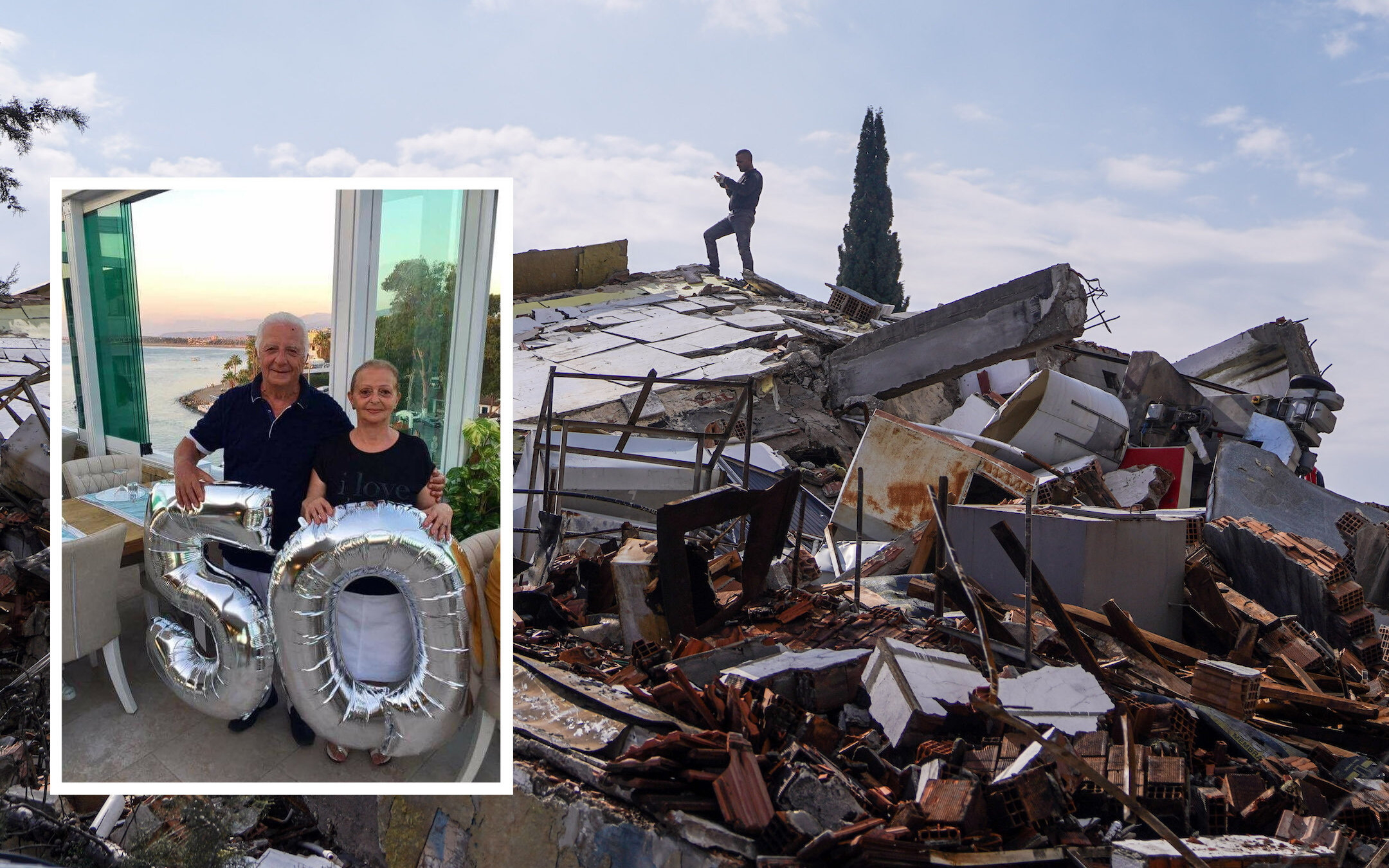Stalwart of Antakya Jewish community confirmed dead in Turkey quake as search continues
An initial report said that Saul Cenudioglu’s body had been retrieved along with his wife’s but he has not yet been identified

HATAY, ANTAKYA, TURKEY – 2023/02/07: Buildings and property seen demolished by the earthquake. Turkey experienced the biggest earthquake of this century in the border region with Syria. The earthquake was measured at 7.7 magnitude. (Photo by Ibrahim Oner/SOPA Images/LightRocket via Getty Images)
(JTA) — The fate of Saul Cenudioglu, the president of the small Jewish community in Antakya, remains unknown, while his wife Fortuna was confirmed dead Thursday morning after an Israeli search team pulled her body from the wreckage of their apartment building.
The two were believed to have been buried when their building collapsed in the first of two massive earthquakes that struck southeastern Turkey on Monday, sparking a humanitarian disaster.
So far the death toll is nearing 20,000 across both Turkey and Syria. The grim toll is only expected to rise as the window for rescues is rapidly closing three days after the quake.
Fortuna’s body was found by a team from the Israel Defense Forces that was combing the devastated city as part of the Israeli relief delegation and had been dispatched to the Cenudioglus’ address.
Over 500 Israeli rescue workers have arrived in Turkey and are working alongside the more than 30,000 relief workers who have descended on the affected zone since Monday. Jewish nonprofits from around the world are also gathering donations and preparing to distribute aid to the affected areas and the hundreds of thousands of people who lost their homes in the quakes.
An initial report said that Saul Cenudioglu’s body had been retrieved along with his wife’s. He has not yet been identified, according to the Turkish Jewish Community.
Saul Cenudioglu was born in Antakya in 1941, back when the city had a much larger Jewish community.
His niece Ela, who was born and raised in Antakya but now resides in Istanbul, told the Jewish Telegraphic Agency that he was a “visionary leader committed to the Jewish community and the values it represents.” She said the family had a textile business in the city.
“He did everything in his capacity to have the small Jewish community of Antakya thrive and connect with the rest of the communities in Turkey and the world,” she added.
Jews have been present in the city, known in antiquity as Antioch, for nearly 2,500 years, since its founding under the Seleucid Empire. The city was once governed by Antiochus, the villain of the Hanukkah story; is frequently mentioned in the Talmud; and was a major center of Jewish scholarship in ancient times, associated closely with the larger Jewish community of neighboring Aleppo.
Though several hundred Jews lived in the city at the time of Cenudioglu’s birth, by last year their number had dwindled to only 14, the youngest of whom was over 60. Many of them worked in shops in the city’s famed Long Bazaar.
Now, Turkish Jews say, it’s unlikely that any will remain.
“The end of a 2500 year old love story,” the Turkish Jewish Community’s president, Ishak Ibrahimzade wrote on Twitter.
This article originally appeared on JTA.org.
A message from our CEO & publisher Rachel Fishman Feddersen
I hope you appreciated this article. Before you go, I’d like to ask you to please support the Forward’s award-winning, nonprofit journalism during this critical time.
We’ve set a goal to raise $260,000 by December 31. That’s an ambitious goal, but one that will give us the resources we need to invest in the high quality news, opinion, analysis and cultural coverage that isn’t available anywhere else.
If you feel inspired to make an impact, now is the time to give something back. Join us as a member at your most generous level.
— Rachel Fishman Feddersen, Publisher and CEO